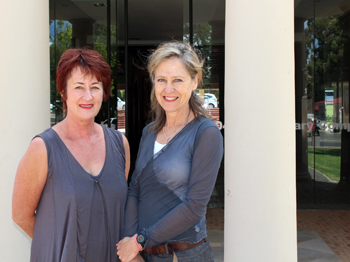Latest News Archive
Please select Category, Year, and then Month to display items
12 October 2020
|
Story Dr Cindé Greyling
|
Photo Supplied
 Exercise and nutrition can work wonders for your mental health – you don’t even have to ‘feel like’ or ‘enjoy’ moving around and eating well for it to work – it does its thing anyway.
Exercise and nutrition can work wonders for your mental health – you don’t even have to ‘feel like’ or ‘enjoy’ moving around and eating well for it to work – it does its thing anyway.
Nowadays, people talk about mental health like it is the common cold – which is good! But do you know what it really means? Being mentally healthy does not only refer to the absence of a mental illness but includes your emotional and social well-being. One would almost want to add physical well-being too, since a healthy body does indeed support a healthy mind. However, since so many people consider themselves ‘mental health experts’, some myths have been sold as truths.
Myth #1 – You are doomed.
Nope. Never. You are never doomed. There is always help. Mental-health therapies range from self-help, talk therapy, medication, to hospitalisation in some cases. Somewhere on this spectrum of treatments, there will be something that works for you. But you must be willing to get the help and do the work. For starters, exercise and nutrition can work wonders – you do not even have to ‘feel like’ or ‘enjoy’ moving around and eating well for it to work – it does its thing anyway.
Myth #2 – It won’t affect you.
It may. Research suggests that one in five people may suffer from a mental illness at some point in their lives. Being well now does not mean that it will stay that way. Biological and environmental factors both impact your mental health. Hopefully not, but at some point, you may experience an event that affects your mental health.
To remain integrated in a community is always beneficial
for anyone suffering from a mental or physical condition.
Myth #3 – Someone struggling with mental health must be left alone.
Hardly! To remain integrated in a community is always beneficial for anyone suffering from a mental or physical condition. You do not need to fix them, but to remain a friend. Continue to invite them, even if they decline. Do not judge, and do not try to understand. Just stay around.
Go and be kind to yourself, and to those around you.
Knowledge sharing key to community building
2015-03-19

From the left: Prof Mabel Erasmus (UFS Service Learning) and Dr Ruth Albertyn (Stellenbosch University).
Photo: Mamosa Makaya |
The Office of Community Engagement facilitated a workshop and book launch attended by NPO partners, PhD students, and university staff from various departments, on 11 and 12 March 2015 on the Bloemfontein Campus. The book entitled Knowledge as Enablement between higher education and the third sector, written by Prof Mabel Erasmus from the Service Learning office and Dr Ruth Albertyn from Stellenbosch University, was the centre of discussion, during which the authors opened the floor to the audience to do a chapter-by-chapter analysis and discussion session.
The book makes a significant contribution to research concerning third-sector organisations, and highlights the value which they bring into engagement work. Dr Choice Makhetha, Vice Rector: External Relations, officiated at the book launch. She applauded the valuable research and hard work that had gone into the project. Some of the workshop topics include ethics and knowledge sharing, technology and communication, social entrepreneurship and the challenges of shared value systems faced by NPOs.